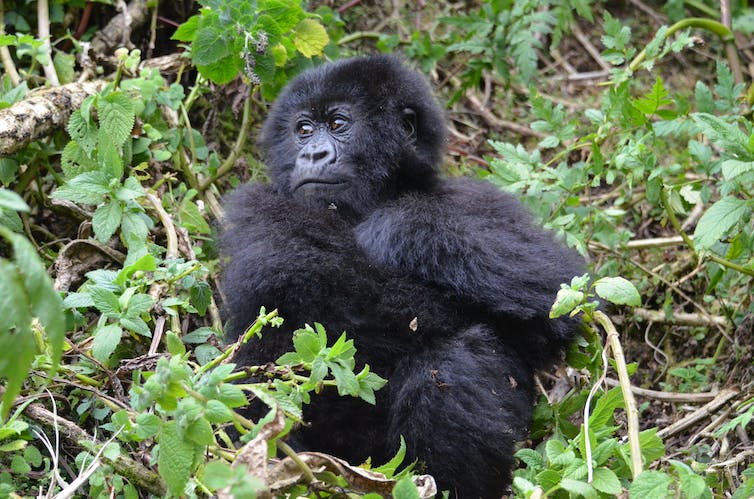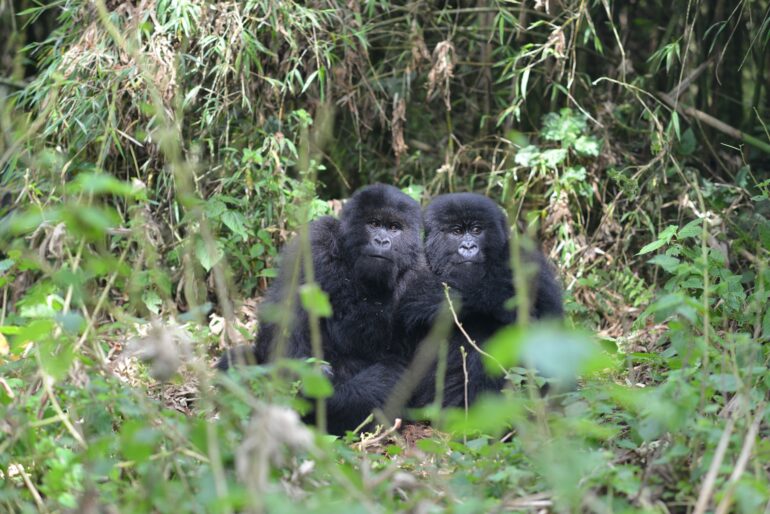In 1974, an infant mountain gorilla was born in Volcanoes National Park in Rwanda. Researchers named him Titus. As is typical for young gorillas in the wild, Titus spent the first years of his life surrounded by his mother, father and siblings, as well as more distant relatives and unrelated gorillas that made up his social group.
In 1978, however, tragedy struck. Poachers killed Titus’ father and brother. In the chaos that followed, his younger sister was killed by another gorilla, and his mother and older sister fled the group. Juvenile Titus, who was at a developmental stage similar to that of an 8- or 9-year-old human, experienced more tragedy in his first four years of life than many animals do in a lifetime.
In people, a rough start in life is often associated with significant problems later on. Early life adversity can take a wide variety of forms, including malnutrition, war and abuse. People who experience these kinds of traumas, assuming they survive the initial event, are more likely to suffer health problems and social dysfunction in adulthood and to have shorter life spans. Often, these outcomes trace back at least in part to what public health researchers call health risk behaviors – things like smoking, poor eating habits and a sedentary lifestyle.
But researchers have documented the same kinds of problems in adulthood in nonhuman animals that experienced early life adversity. For example, female baboons who have the hardest childhoods have life spans that are on average only half as long as their peers that have the easiest. Activities like smoking and unhealthy food choices can’t be the whole story, then, since animals don’t engage in typical human health risk behaviors.
Given the connection between adverse events while young and poor health later in life, one might expect that Titus’ unlucky early years would predict a short, unhealthy adulthood for him. However, there are interesting hints that things might work differently in mountain gorillas, which are one of humans’ closest living relatives.

Researchers analyzed decades of observational data to determine how life turned out for young gorillas that had faced adversity.
Dian Fossey Gorilla Fund
Decades of gorilla observations
As scientists who have spent many years studying wild gorillas, we have observed a wide variety of early life experiences and an equally wide variety of adult health outcomes in these great apes. Unlike other primates, mountain gorillas don’t appear to suffer any long-term negative effects of losing their mothers at an early age, provided that they reach the age at which they are old enough to have finished nursing.
Losing your mother is only one of many bad things that can happen to a young gorilla, though. We wanted to investigate whether a pattern of resilience was more generalized. If so, could we gather any insight into the fundamental question of how early life experiences can…



